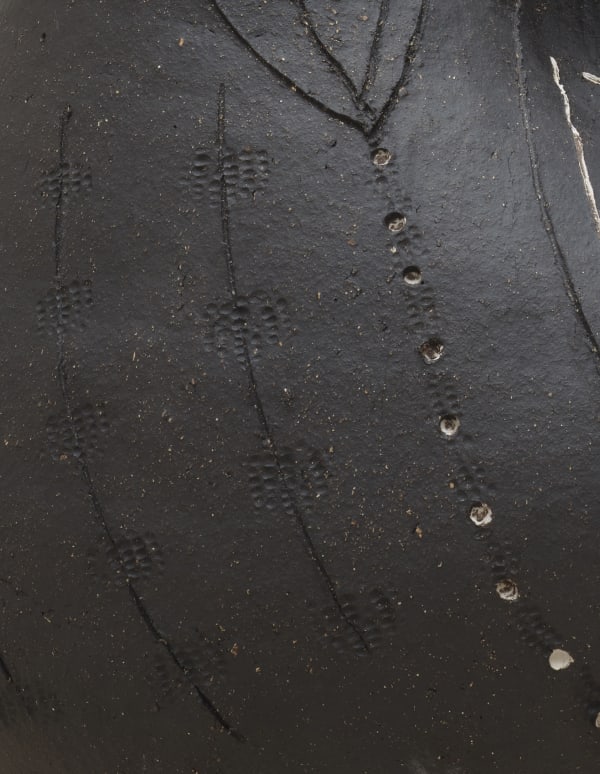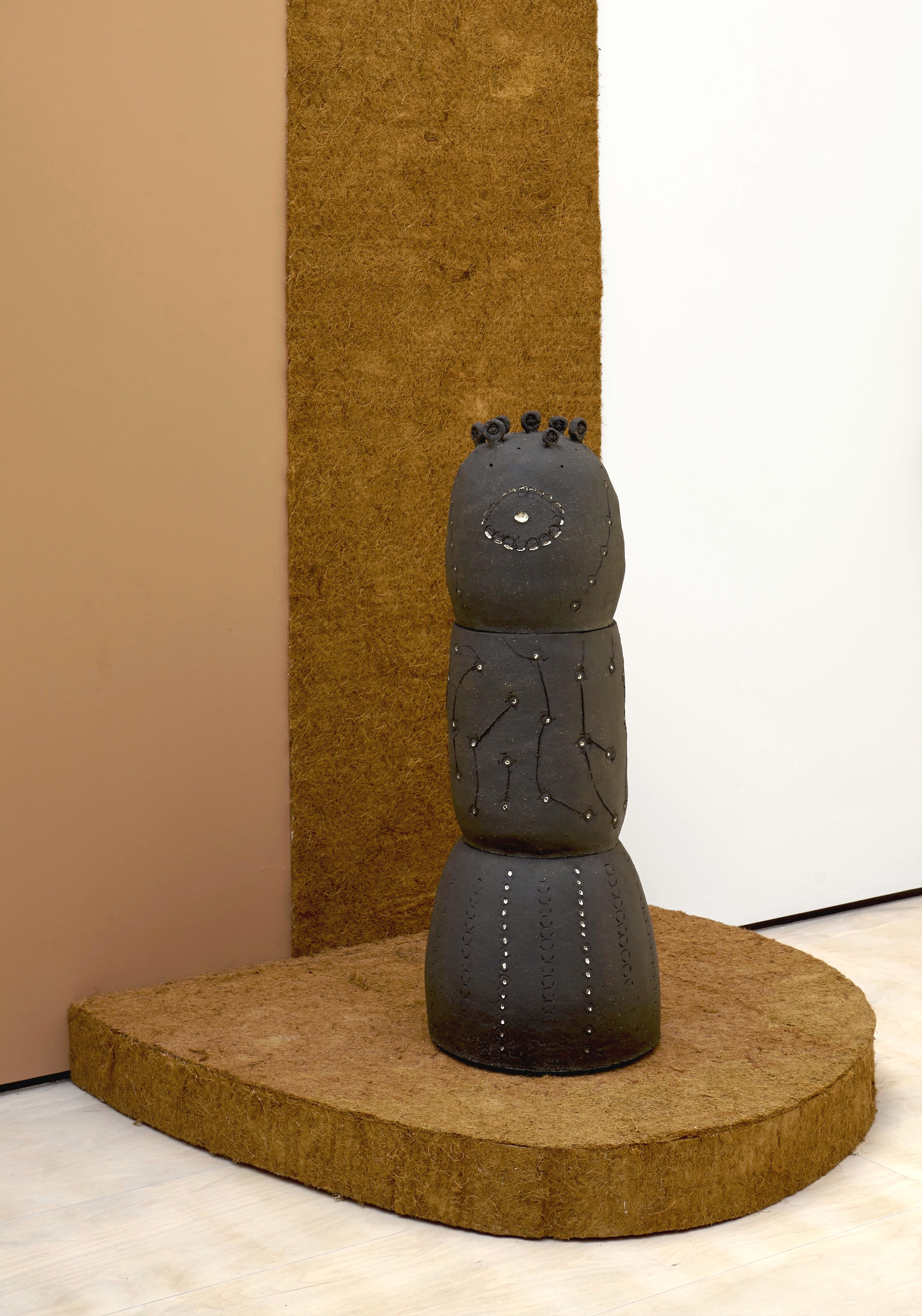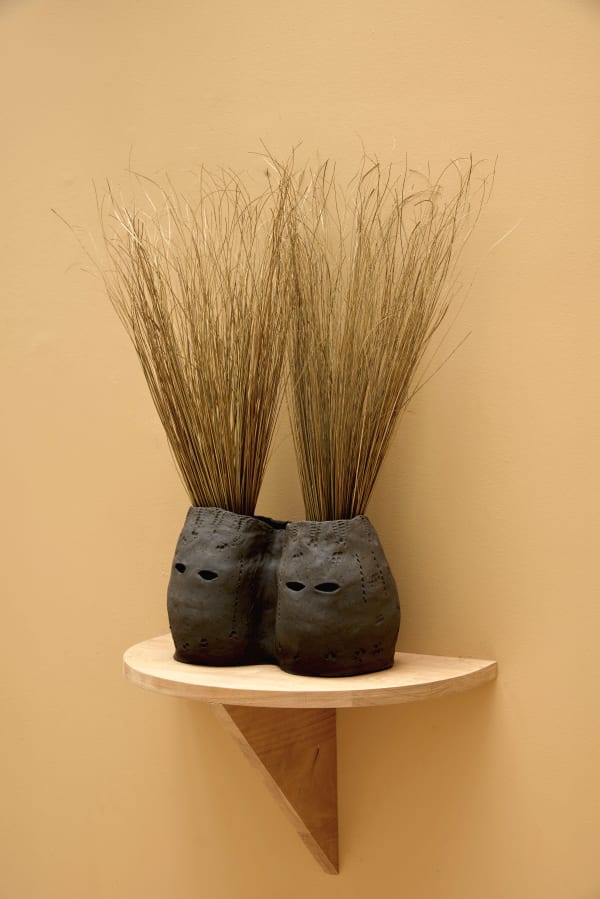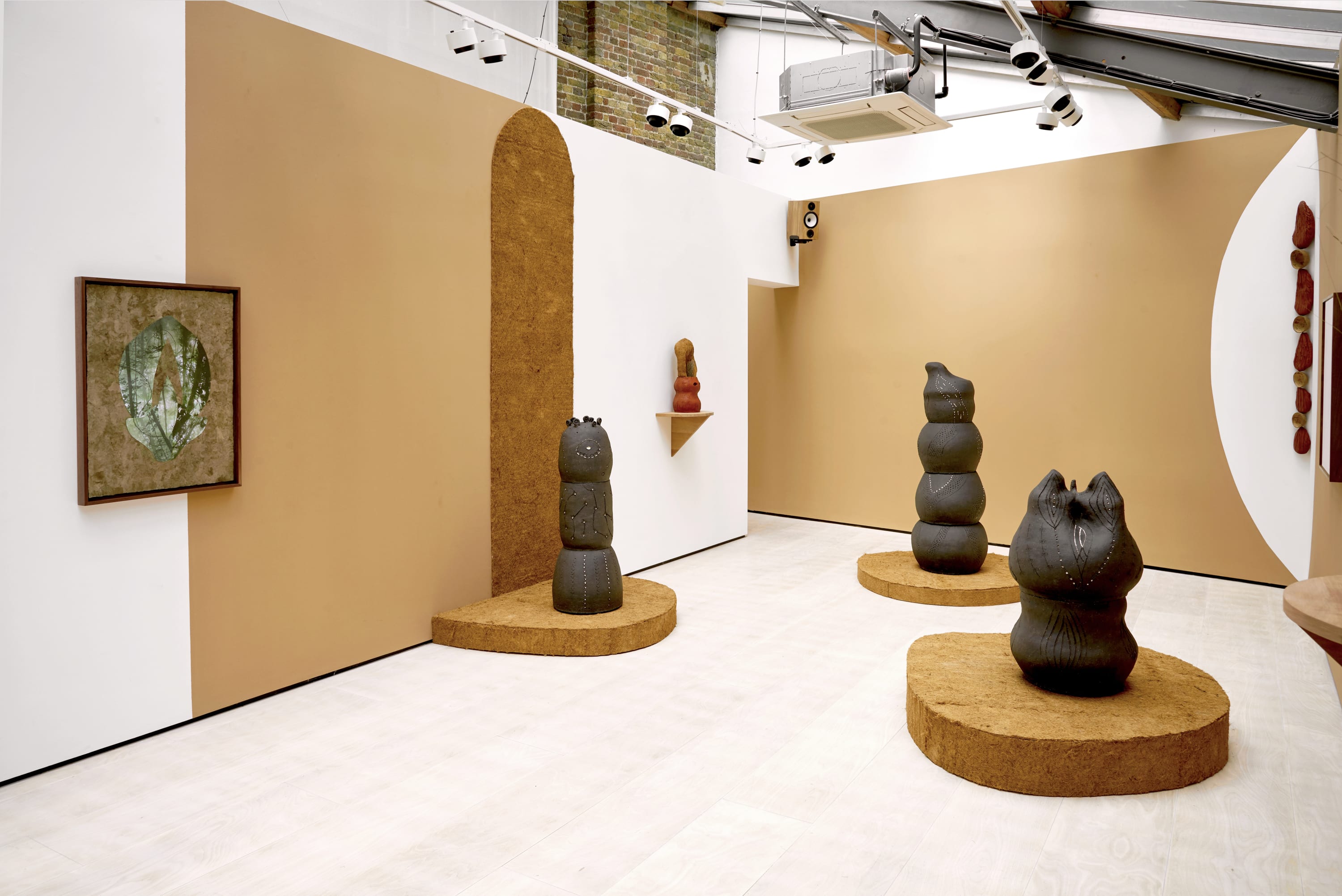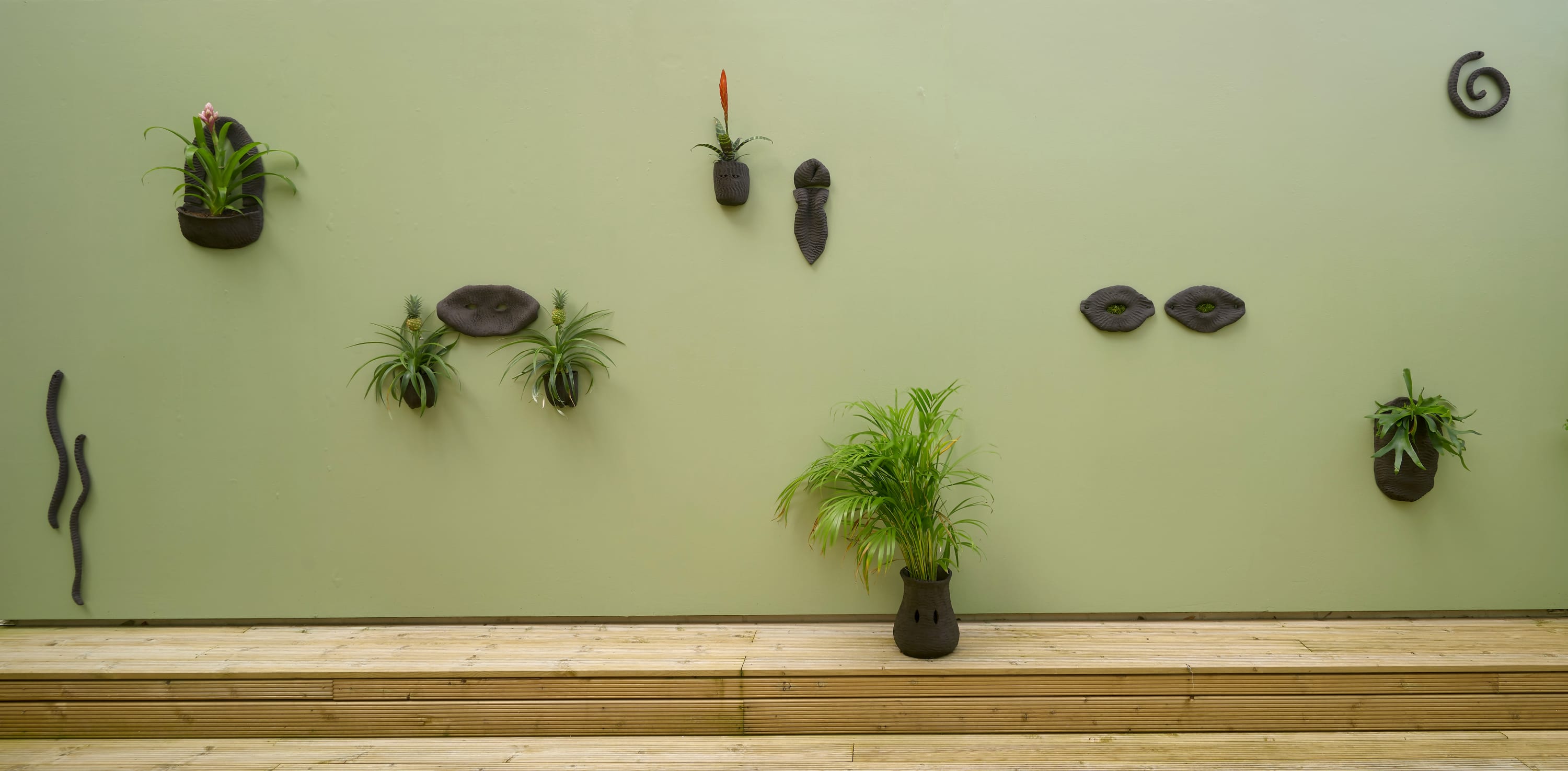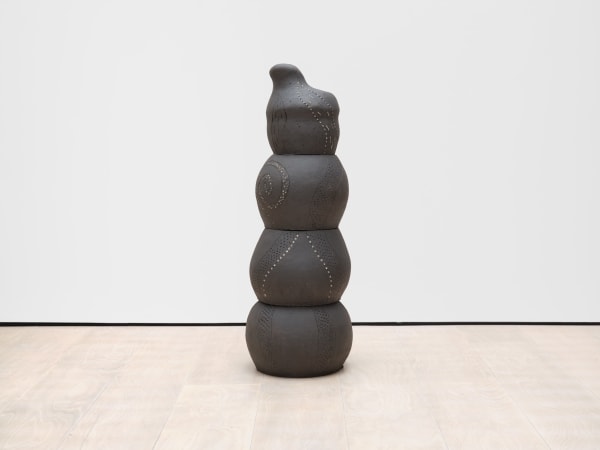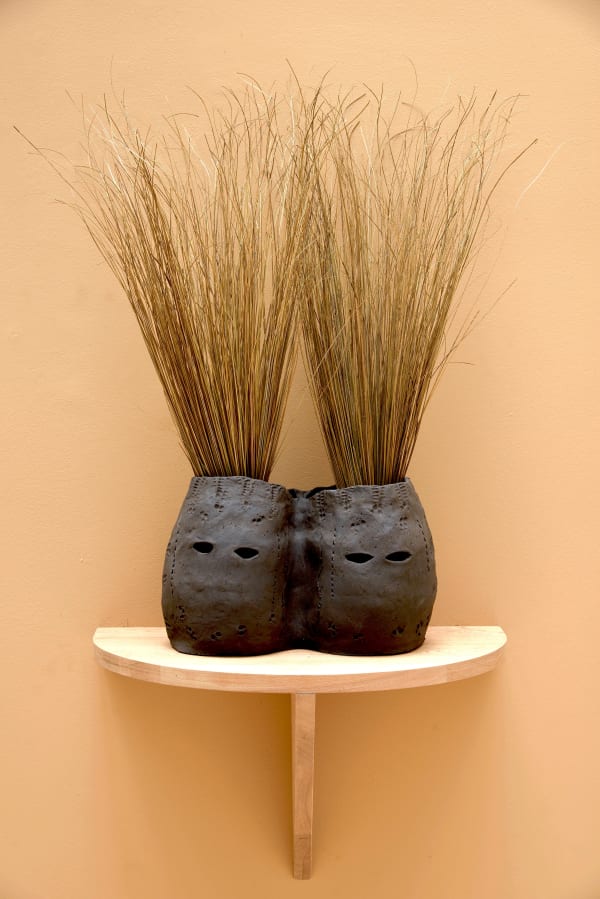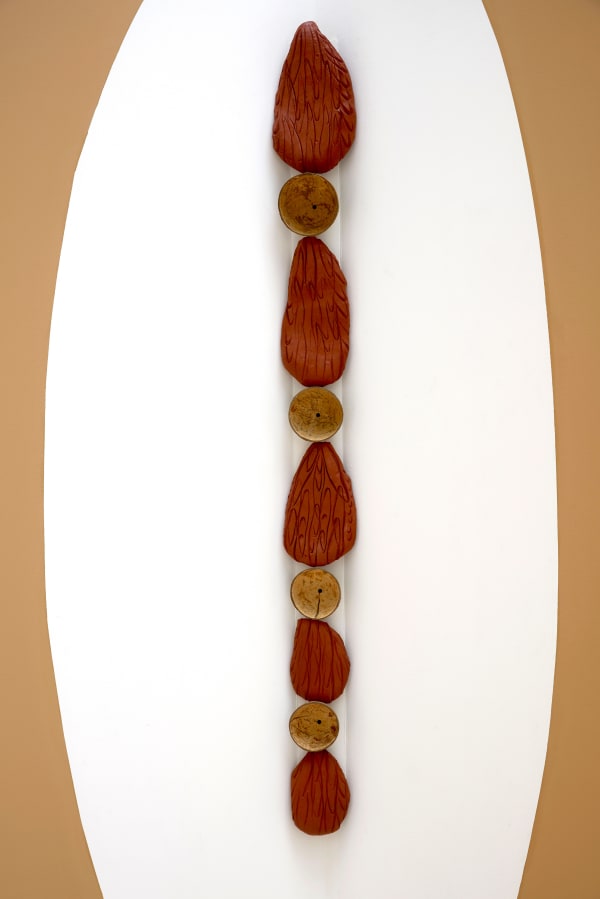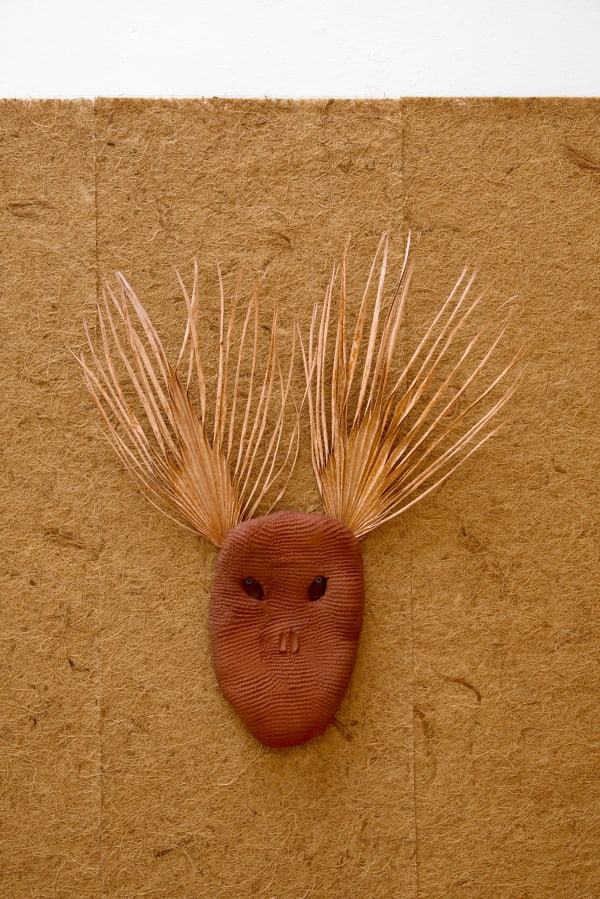-
Cecilia Brunson Projects is pleased to present the gallery’s third solo exhibition by Lucía Pizzani (b. 1975, Caracas). In this immersive exhibition, Pizzani presents newly commissioned and site-specific works, extending into the gallery’s courtyard.We are excited to share new developments in Pizzani’s practice ahead of the publication of her first monograph later this year, edited by Natalia Valencia Arango and with contributions by Nicolas Bourriaud, Jesus Torrivilla, Lisa Le Feuvre and Lucia Pietroiusti.
-
 Lucía Pizzani
Lucía PizzaniFlora Totem Pino, 2023
Black stoneware clay and slip138 x 50 x 50 cm (54 3/8 x 19 3/4 x 19 3/4 in) -
 Lucía PizzaniFlora Totem Eucalipto, 2023Black stoneware clay and slip104 x 35 x 35 cm
Lucía PizzaniFlora Totem Eucalipto, 2023Black stoneware clay and slip104 x 35 x 35 cm
41 x 13 3/4 x 13 3/4 in -
Pizzani’s research-based practice, informed by her studies in conservation biology and her involvement in Venezuela’s environmental movement, is concerned with the intertwining narratives of natural and human histories. In their material makeup, the works presented all hold stories of migration: of plants and their products, cultural practices, and the artist’s own migration from Venezuela to London.Pizzani has worked with ceramics for over 15 years, and this medium takes focus in Rites, Seeds and Refuge. The freestanding sculptural Flora Totems are Pizzani’s largest ceramic works to date. Sites of cultural convergence, they are made from English clay and white slip, and imprinted with plants such as corn and eucalyptus, as Pizzani invokes the histories of flora both native and imported to South America.
-
-
 Lucía PizzaniCeiba Deity, 2024Photographic collage on Amate paper80 x 60 cm
Lucía PizzaniCeiba Deity, 2024Photographic collage on Amate paper80 x 60 cm
31 1/2 x 23 5/8 in -
The anthropomorphic, guardian-like sculptures watching over the gallery space reflect Pizzani’s tendency to identify spirit-like imagery within natural forms, exploring concepts of interconnectivity across plant and animal worlds.Many of the sculptures are textured with corn, or incorporate dried, treated corn cobs into their composition (such as Jojoto Rojo, taking its name from the Venezuelan word for corn), as Pizzani celebrates its central importance as a staple food across Latin America. Meanwhile, other works are imprinted with the seeds of plants such as eucalyptus or pine - monocultures now widely cultivated in Latin America which threaten biodiversity. Pizzani’s work speaks to our interdependence with the natural world: the nourishment it provides and the need for us to protect it.
-
The exhibition includes a series of collages made with Amate paper, made from the woven fibres of tree bark. The oldest existing examples of this material are Mesoamerican codices – manuscripts containing chronicles, rituals and astrological recordings of these civilisations – while most artefacts were destroyed and the production of Amate paper banned by Spanish conquistadors.Now a significant cultural export representing the continuation of Indigenous cultures in Mexico, the material stands for the loss, endurance and transmutation of native cultures and the plant species intrinsic to them, and integral in reciting and sustaining their histories.
-
-
Photographs from the forests of Venezuela are manipulated into spirit-like icons, drawing attention to the poetic significance of plants and beings in this ecosystem, or centring specific plant species and their histories that unfolded alongside human cultures.For example, the Ceiba tree (featured in Ceiba Deity) connected the sky with the underworld in pre-Columbian Mesoamerican mythologies, and a 100 year old Ceiba stands at the centre of Caracas in front of the San Francisco Church, demarcating one of the city’s most significant sites in its colonial history. Capullo refers to a flower bud or a cocoon. The cocoon is a symbol repeated throughout Pizzani’s work, which frequently draws on the parallels between narratives of women in history and literature and processes of metamorphosis. For Pizzani, the cocoon or chrysalis serves as a shorthand for the adaptability and invisibility of women throughout history.Through her attentiveness to material histories and creation of talismanic and spirit imagery, Pizzani promotes a notion of nature as a refuge as it bears witness to human stories.
-

-
 Lucía PizzaniCadena, 2024Red stoneware clay and dried coconuts160 x 17 x 11 cm (63 x 6 3/4 x 4 3/8 in)
Lucía PizzaniCadena, 2024Red stoneware clay and dried coconuts160 x 17 x 11 cm (63 x 6 3/4 x 4 3/8 in) -
 Lucía Pizzani, Seres Tropicales, 2024, mural installation, 10 black stoneware clay sculptures imprinted with corn, live plants
Lucía Pizzani, Seres Tropicales, 2024, mural installation, 10 black stoneware clay sculptures imprinted with corn, live plants -
Outside in the gallery courtyard, between walls of ivy and rosebushes, a mural installation of clay sculptures provides a home for tropical plants, drawing on the artist’s memories growing up in the green valleys of Caracas near Venezuela’s Caribbean coast.The sounds of these plants’ pollinators fill the exhibition space, with a soundscape produced by Ezequiel Pizzani incorporating the wind, the batting wings of hummingbirds and the buzzing of bees.Rites, Seeds and Refuge coincides with Pizzani’s commission for the 2024 Harewood Biennial in Leeds, UK, in which she presents a second live plant installation for the walled garden of Harewood House.
-
-

![Lucía Pizzani Flora Totem Maíz [Corn], 2023 Black stoneware clay and slip, imprinted with corn, steel base 91.5 x 48 x 46 cm 36 x 18 7/8 x 18 1/8 in](https://artlogic-res.cloudinary.com/w_600,c_limit,f_auto,fl_lossy,q_auto/artlogicstorage/cbprojects/images/view/4e79e6d6d7c0fb26958ae951e13a1de6j.jpg)
